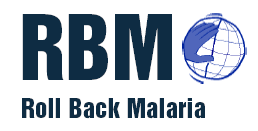Apr 21 2005
 The Roll Back Malaria partnership (RBM)—an international alliance of over 90 organisations— has not only failed to control malaria, but its ineffectiveness has meant that malaria rates have increased since its inception, states an editorial in this week’s issue of The Lancet ahead of Africa Malaria Day on April 25, 2005.
The Roll Back Malaria partnership (RBM)—an international alliance of over 90 organisations— has not only failed to control malaria, but its ineffectiveness has meant that malaria rates have increased since its inception, states an editorial in this week’s issue of The Lancet ahead of Africa Malaria Day on April 25, 2005.
RBM, which includes organisations such as WHO, UNICEF and the World Bank, was set up seven years ago to highlight the existence of low-cost and effective interventions for malaria and low levels of spending on this disease. RBM is the main instrument through which African leaders were hoping to achieve the goals of the Abuja Declaration of 2000—where 53 African heads of state pledged to halve malaria mortality by 2010. But since its inception, malaria rates have increased, and the organisation has accumulated an expansive list of missed opportunities and dismal failures. The editorial states that RBM’s organisational structure has contributed to its ineffectiveness.
The Lancet comments: “5 years on from the Abuja Summit, it is clear that not only has RBM failed in its aims, but it may also have caused harm. The 2010 target to halve malaria deaths now looks unreachable, but urgent action is necessary to meet even the Millennium Development Goal deadline of 2015 for halting malaria’s spread.”